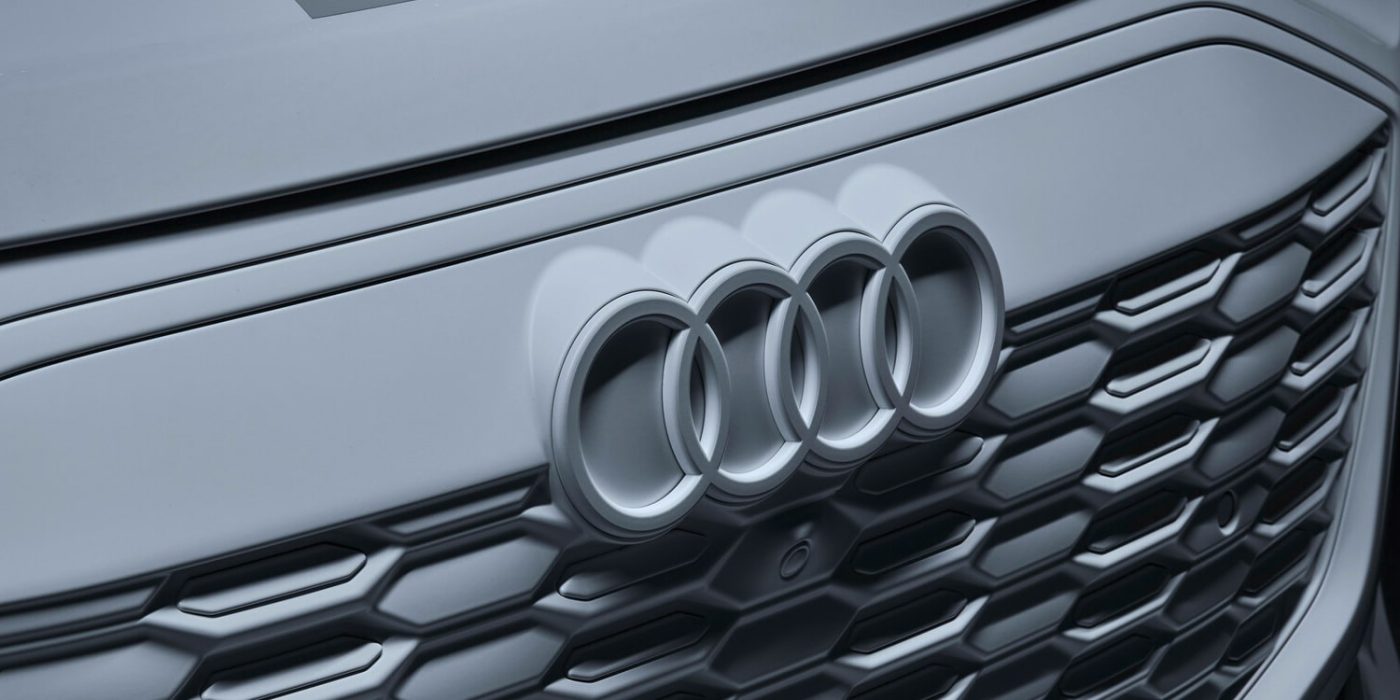Audi cuts 7,500 jobs; remains committed to German sites
Audi is tackling its current crisis with job cuts, slimmed-down employee bonuses and lower management salaries, but also with investment promises for its German sites. In addition, the company pledges to avoid redundancies and mitigate job cuts by bringing back previously outsourced activities (especially development services). According to the VW subsidiary’s austerity plans presented on Monday, the aim is to save around one billion euros per year at the German sites in Neckarsulm and Ingolstadt.
At the same time, Audi plans to invest around eight billion euros in its German plants by 2029 – mostly in electric mobility. Audi has made the first rough plans public: for example, an as-yet-unspecified electric Audi will be produced at the Neckarsulm plant in the future. No electric models are currently being built there; Audi only assembles the top model e-tron GT at the affiliated Bölliger Höfe factory. The carmaker also wants to manufacture another electric model at its main plant in Ingolstadt, in addition to the A6 e-tron and the Q6 e-tron – specifically, an electric car in the entry-level segment. However, the final decision lies with the Volkswagen Group’s planning committee. One thing is already clear: if Neckarsulm does not get the electric model after all, the board has pledged to set up a 250-million-euro transformation fund for the site.
As for Ingolstadt, combustion engine production will not be phased out in 2030, but rather, according to the current plan, by 2033. Audi also indicated that it intends to invest in combustion engine technology for even longer than originally planned. The further development of cars with petrol and diesel engines was supposed to be discontinued from 2026. These steps suggest that the VW subsidiary is also reconsidering its overarching plan to sell only electric cars in Europe from 2033 – two years before this is currently required by law.
As for the job cuts, Audi intends to focus primarily on non-production areas – and to proceed in stages: 6,000 jobs will be cut by the end of 2027, with 750 in each of the following two years. At the same time, the company will extend its job security programme by four years to the end of 2033, so that the job cuts only have to be carried out in a socially responsible manner.
It has been clear for some time that things cannot continue as before at Audi. In February, the VW subsidiary set up a special organisational unit for transformation. Building on the series organisation introduced at the turn of the year, the Ingolstadt-based company announced that it would increase the pace “with a more efficient organisation and less complexity.” At that time, the carmaker already made it clear that the restructuring would also cost jobs.
Time is of the essence because Audi’s sales are in noticeable decline: in 2024, it was 1.67 million units, or twelve per cent less than in 2023. Of these, 164,500 were electric cars (-7.8 %), which corresponds to an EV share of just less than ten per cent. Audi faces massive problems, particularly in the once-important US and Chinese markets. In China, it now hopes to sell electric cars with the sub-brand AUDI without the four rings on the front to reverse the trend. And since Audi – unlike Mercedes and BMW – has no US plant, the German company would be more affected by an escalation in the tariff dispute. Although the company is considering US production (together with Porsche, which is facing the same problems), building a plant costs a lot of money and takes quite a while.
The cost-saving package is intended to help Audi achieve higher returns again; the group is apparently talking about ‘high single-digit returns on sales’ by the end of the decade. In the first three quarters of 2024, Audi only managed 2.5 per cent, which is considered too low in the industry, even for volume manufacturers. Audi will present its financial figures for the fourth quarter and 2024 later today.
“Together with the employee representatives, we have reached a strong agreement for the future of the company and the Audi team,” says Audi CEO Gernot Döllner on the current situation. “The agreement is an important milestone for Audi. Starting from scope-driven target pictures, we are strengthening our competitiveness and setting up in a future-proof manner. Together, we are sending a clear signal for more focus, efficiency, and profitability at our German sites.”
Almost the entire industry is having to make savings, as evidenced by the extensive job-cutting programmes at several domestic manufacturers: Volkswagen had already announced the loss of around 35,000 jobs in Germany by the end of 2024, and thousands of jobs are also being cut at Porsche and Mercedes, as well as at suppliers such as Bosch, ZF and Continental.





0 Comments